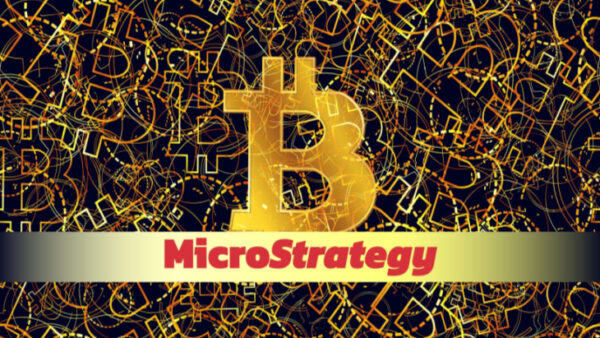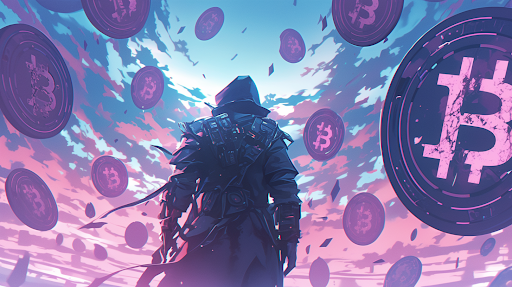Should You Buy Kendu Inu Coin?
Kendu Inu coin has spiked 300% since June 2024, a surprisingly fast move considering the coin just launched in April 2024. But, despite this jump, the mainstream financial media still has not mentioned Kendu Inu. The community is fairly small but appears to be growing quickly. So, is this a good opportunity to “get in on the next meme stock” before it actually becomes the next meme stock? Here are my thoughts.
What is Kendu Inu Coin?
After diving into Kendu Inu’s website and social media pages, there really isn’t much to say about the coin itself. That’s because this crypto project isn’t working on a larger mission. There is no white paper outlining the project’s roadmap or new technology being built. The whole point of the project is just to attract users so that the coin’s price surges.
On its website, Kendu Inu’s mission statement says that Kendu
“Inspires his army of loyalists daily to sculpt a haven where hard work births prosperity, while striking fear in the hearts of jeets. Witness the epic rise of Kendu Inu, the next billion-dollar meme ecosystem.”
Huh. The website also states, “We don’t gamble. We work.” I wonder what they’re working so hard on since there doesn’t seem to be any type of roadmap at all.
Despite this lack of a roadmap, Kendu Inu’s price has soared recently. According to CoinGecko’s price data, Kendu Inu coin surged from $0.00005 in early June 2024 to $0.0002 as of mid-June – a movement of roughly 300%. The price movement started around June 4th, so I did some research to try and find a catalyst.
Through Kendu Inu’s Twitter, I learned that a few major events happened around June 4th:
- Kendu Inu bought a billboard on Times Square.
- Kendu Inu applied to get listed on Binance.
There’s a good chance that lots of people saw the billboard and bought Kendu Inu which is what caused the price run-up. Or, people saw the news about the Binance listing application and rushed to buy the coin.
Price run-ups could continue if Kendu Inu keeps gaining popularity. But, to be clear, Kendu Inu doesn’t seem to have any long-term roadmap outside of “grow the community” and “hopefully we all get rich.” If you buy Kendu Inu coin then you’re essentially making a bet that this coin could become the next Doge, Shiba Inu, or Bonk coin. But, that doesn’t mean that you shouldn’t buy it.
Leveraging Moonshot Investments
Investing in cryptocurrency still tends to get a bad reputation. If you bring up this topic in conversation, most people will likely give you a small eye roll and change the topic quickly. However, with BTC and ETH both getting approved for ETFs, more validity is coming to the space. It may only be a few more years until investing in lesser-known coins starts to be considered a legitimate investing strategy. It could even become similar to angel investing.
At its core, buying new cryptocurrencies is a moonshot investment. If you buy a meme coin, you’re doing so with the hopes that it can 10X or even 100X your money fairly quickly. This strategy is little different than angel investing, which involves investing in startups. With angel investing, venture capitalists place bets on dozens of early-stage companies. They know that 90% of the companies they invest in will fail. But, they’re hoping that just one startup out of ten will become the next Facebook (Nasdaq: META). Finding this one winner makes up for all the other startups that fail.
Of course, the biggest difference is that startups almost always have a mission statement, a product or service, and revenue (usually). Kendu Inu coin doesn’t have any of this and probably never will. But, you can still borrow the same investing strategy that angel investors use.
When it comes to buying meme coins, it’s a good idea to allocate a small percentage of your portfolio to early-stage coins in hopes of earning an outsized return. Getting in early on the next meme coin can immediately make up for money that you lose on other bad bets. But, this brings me to my most important point.
Only Invest Money That You Can Afford to Lose
The Kendu Inu community is small and growing incredibly quickly. It’s impressive that the coin is already this well-known despite its young age. If you’re looking to find the next big meme coin then it’s certainly a good bet. But, if you want to buy Kendu Inu coin it’s a good idea to only do so with money that you can afford to lose. Remember, any asset that can rise 300% in one month can fall 300% in one month just as quickly.
Additionally, beware that the Kendu Inu community deliberately tugs at people’s FOMO (Fear of Missing Out). Its Twitter page is loaded with comments about how you “don’t want to miss out”, “buying Kendu Inu will make you rich”, and other quotes that sound like they’re straight out of the Stratton Oakmont Sales Manual. Even the Time’s Square billboard starts off with “Missed Shiba Inu?” All of this marketing is designed to try and manipulate investors into buying Kendu Inu in hopes of earning a massive return. Keep this in the back of your mind when doing your own due diligence.
So, How Do you Buy Kendu Inu?
Kendu Inu is traded on decentralized exchanges right now. The best way to purchase is to use uniswap and trade Shiba/ETH pairing.
Simply, connect Uniswap with either your MetaMask, WalletConnect, or Coinbase wallet, select the sell amount for ETH and recieve your Kendu in your connected wallet.
Here’s a great video posted on reddit walking through the entire set up.
I hope that you’ve found this article valuable when it comes to learning about Kendu Inu. If you’re interested in learning more then please subscribe below to get alerted of new investing opportunities from InvestmentU.
Disclaimer: This article is for general informational and educational purposes only. It should not be construed as financial advice as the author, Ted Stavetski, is not a financial advisor. Ted also did not own Kendu Inu coin at the time of writing.
About Teddy Stavetski
Ted Stavetski is the owner of Do Not Save Money, a financial blog that encourages readers to invest money instead of saving it. He has five years of experience as a business writer and has written for companies like SoFi, StockGPT, Benzinga, and more.





